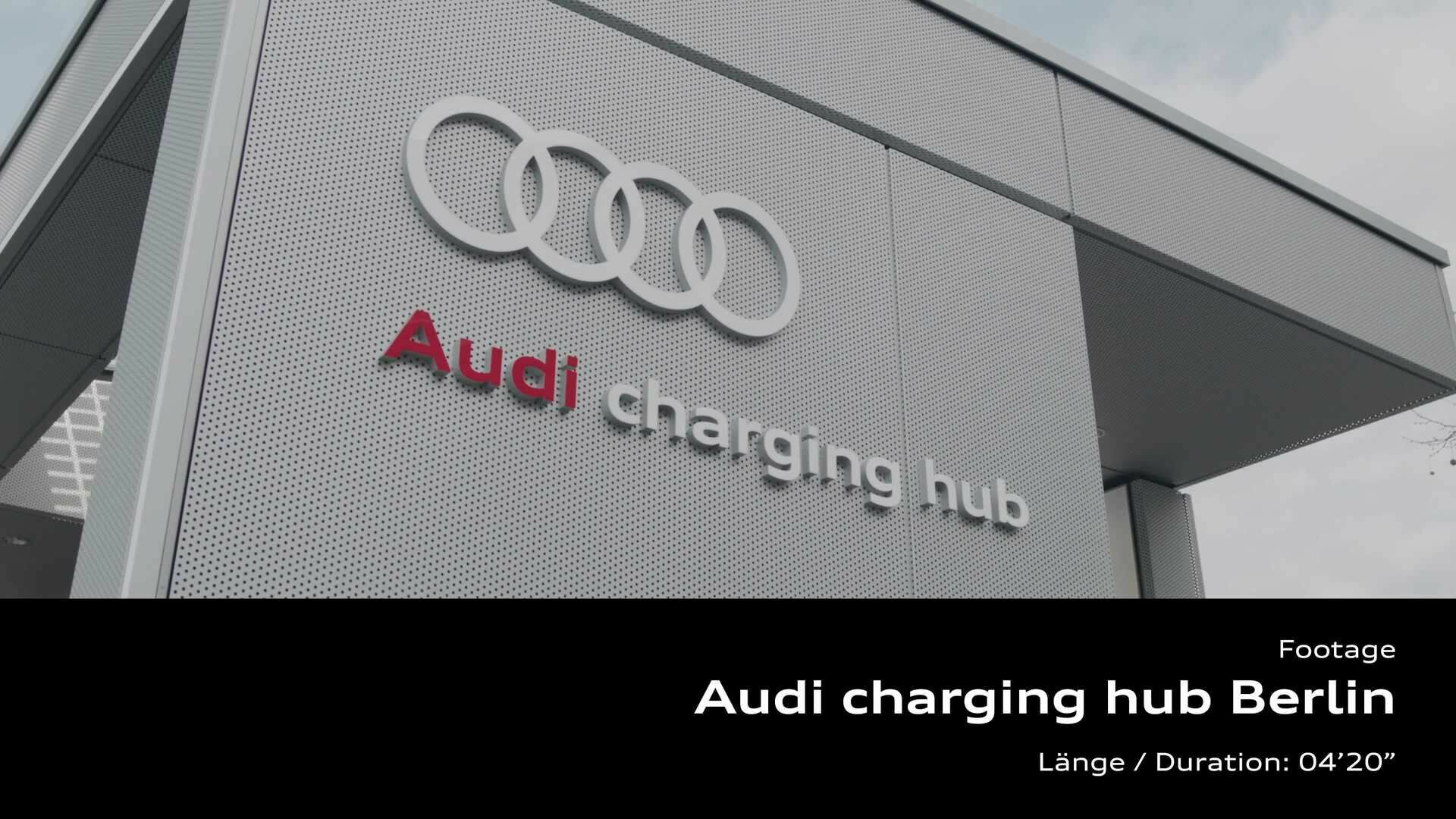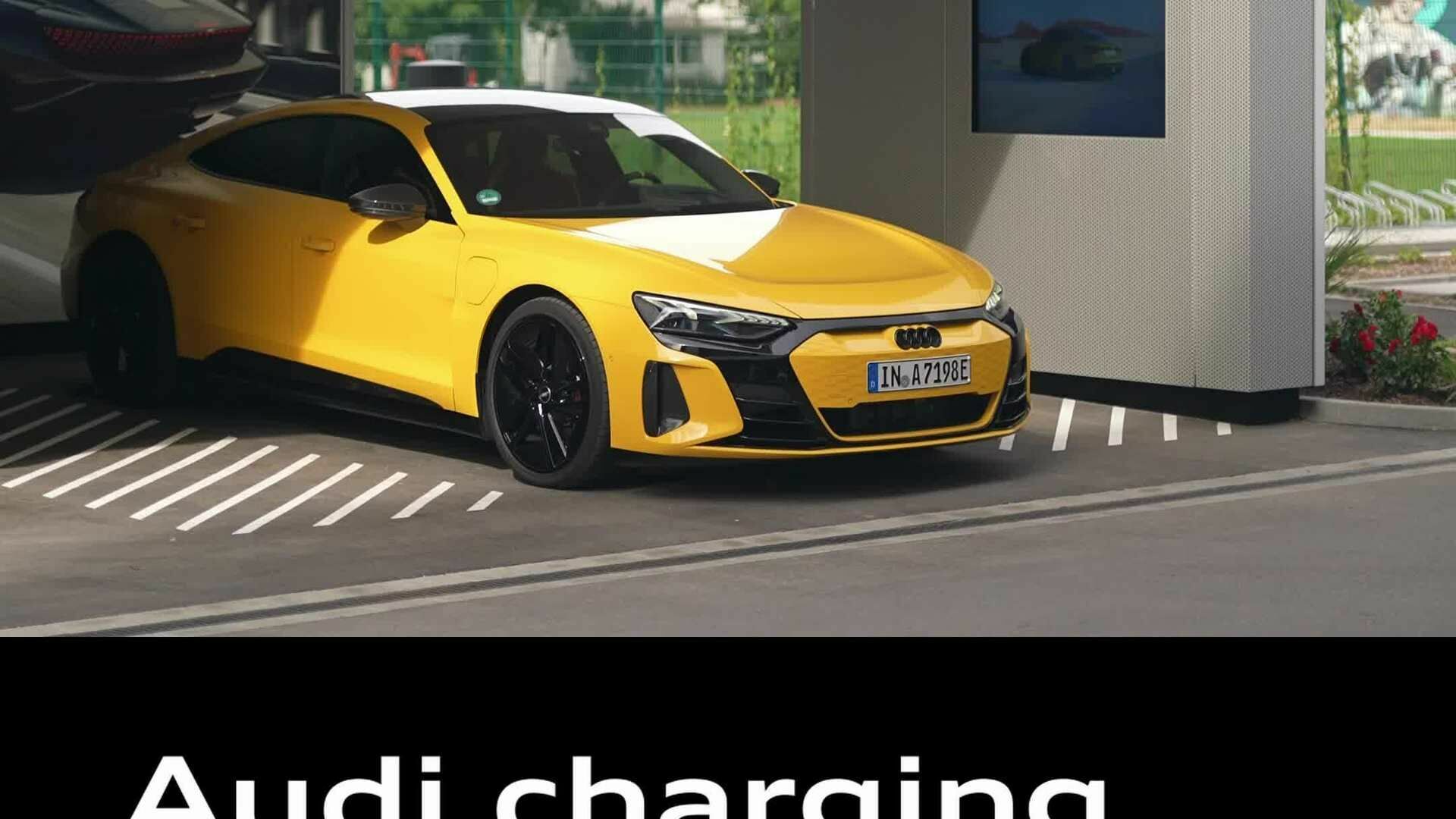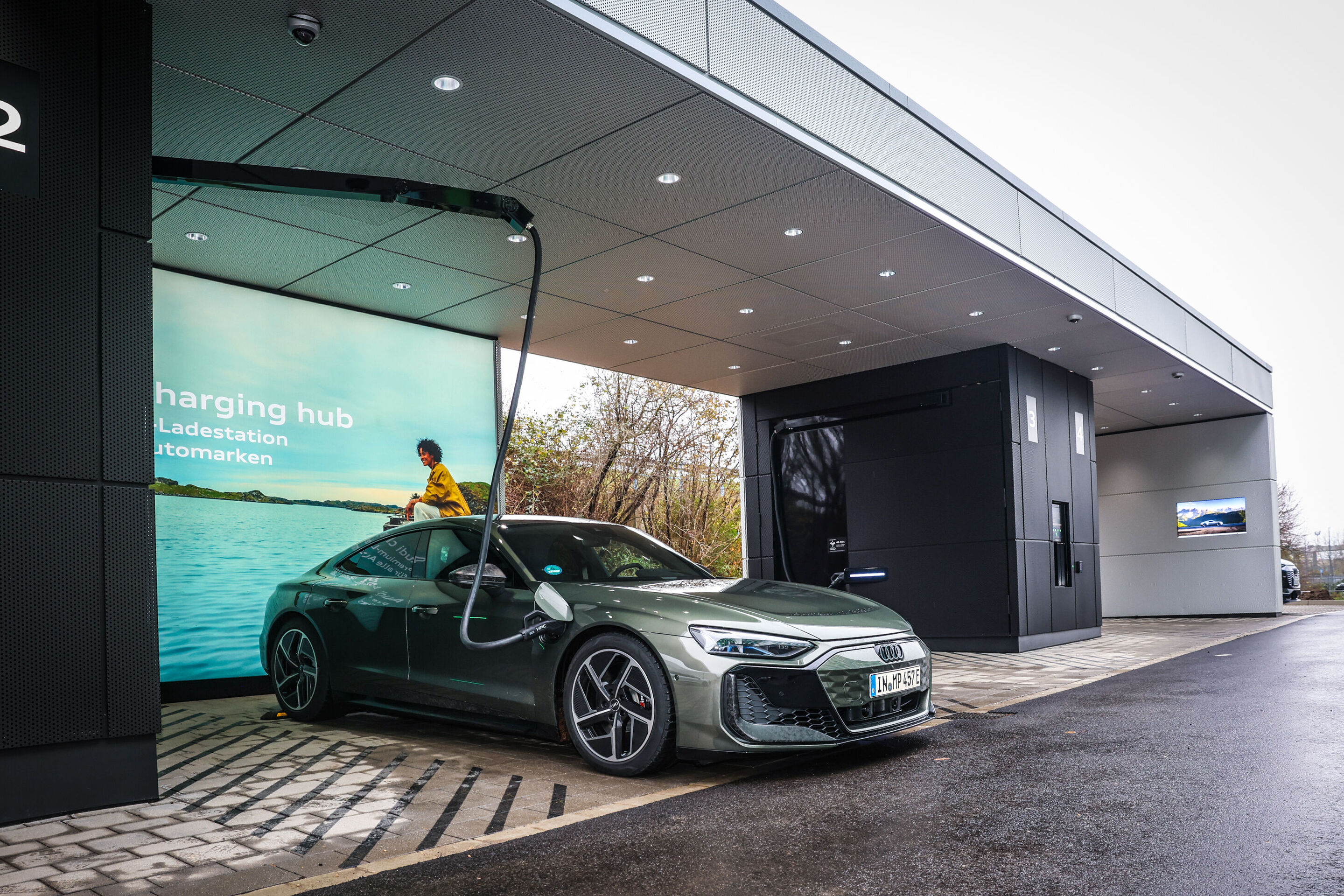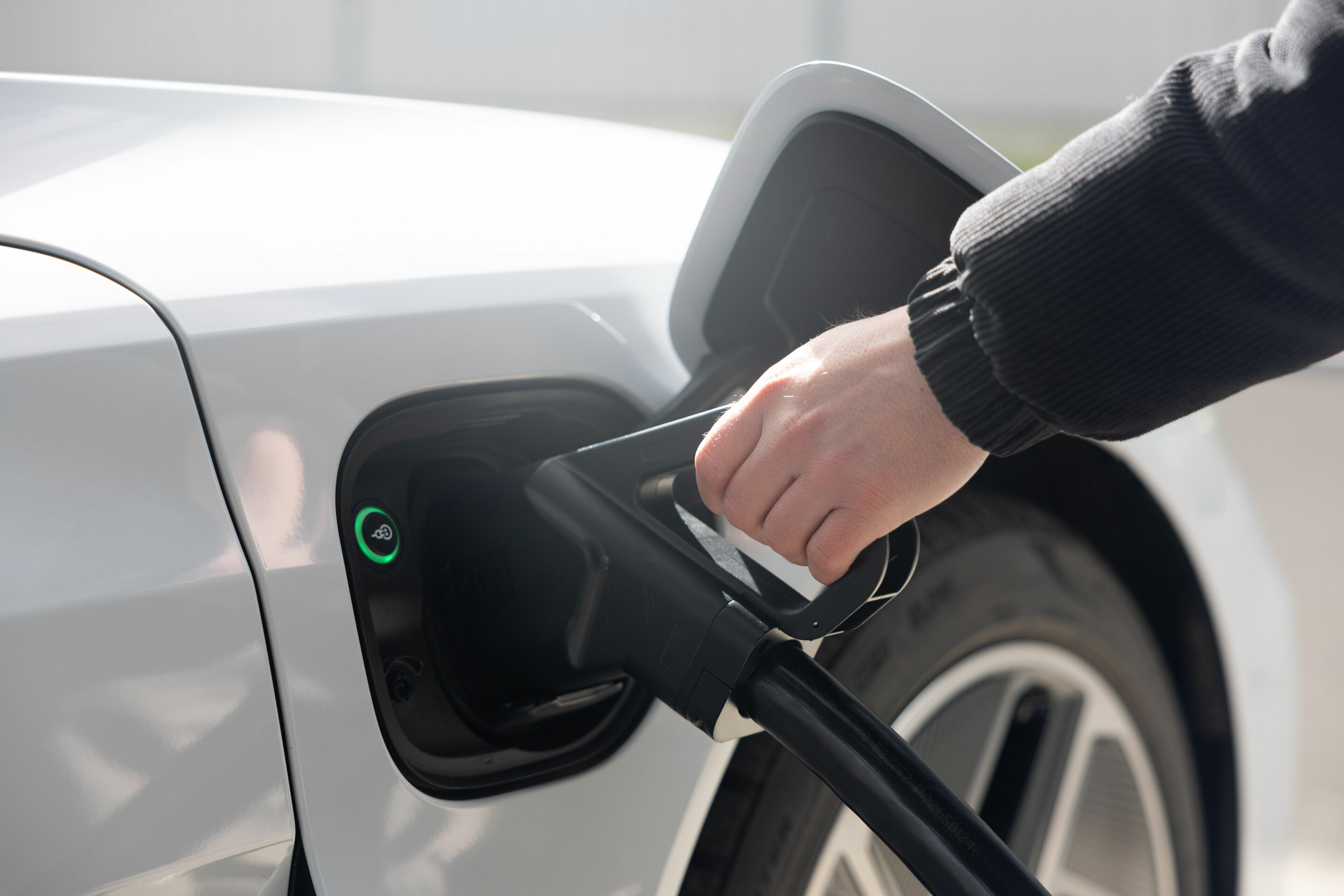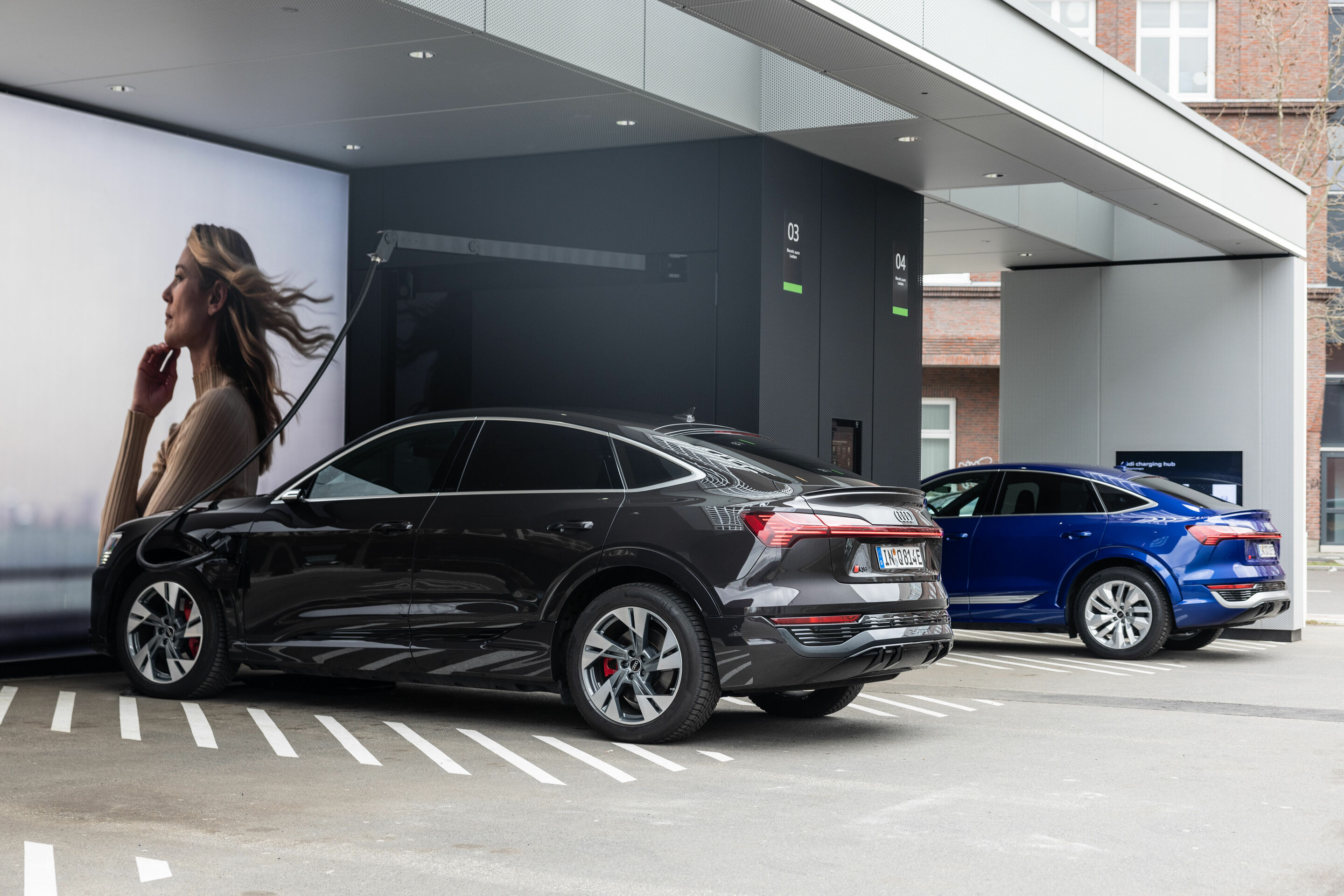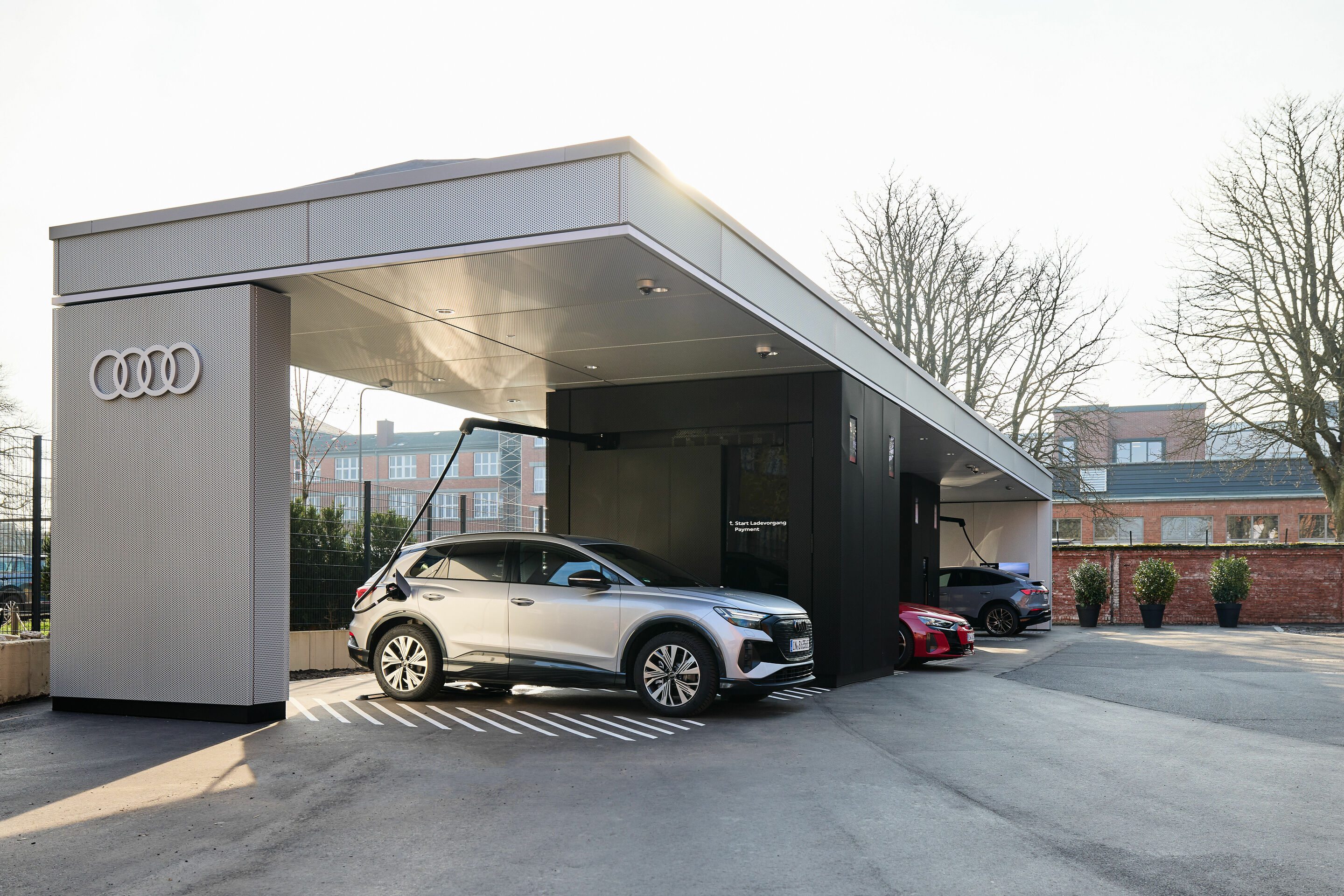Search
All search results for "Audi charging hub"
(205)
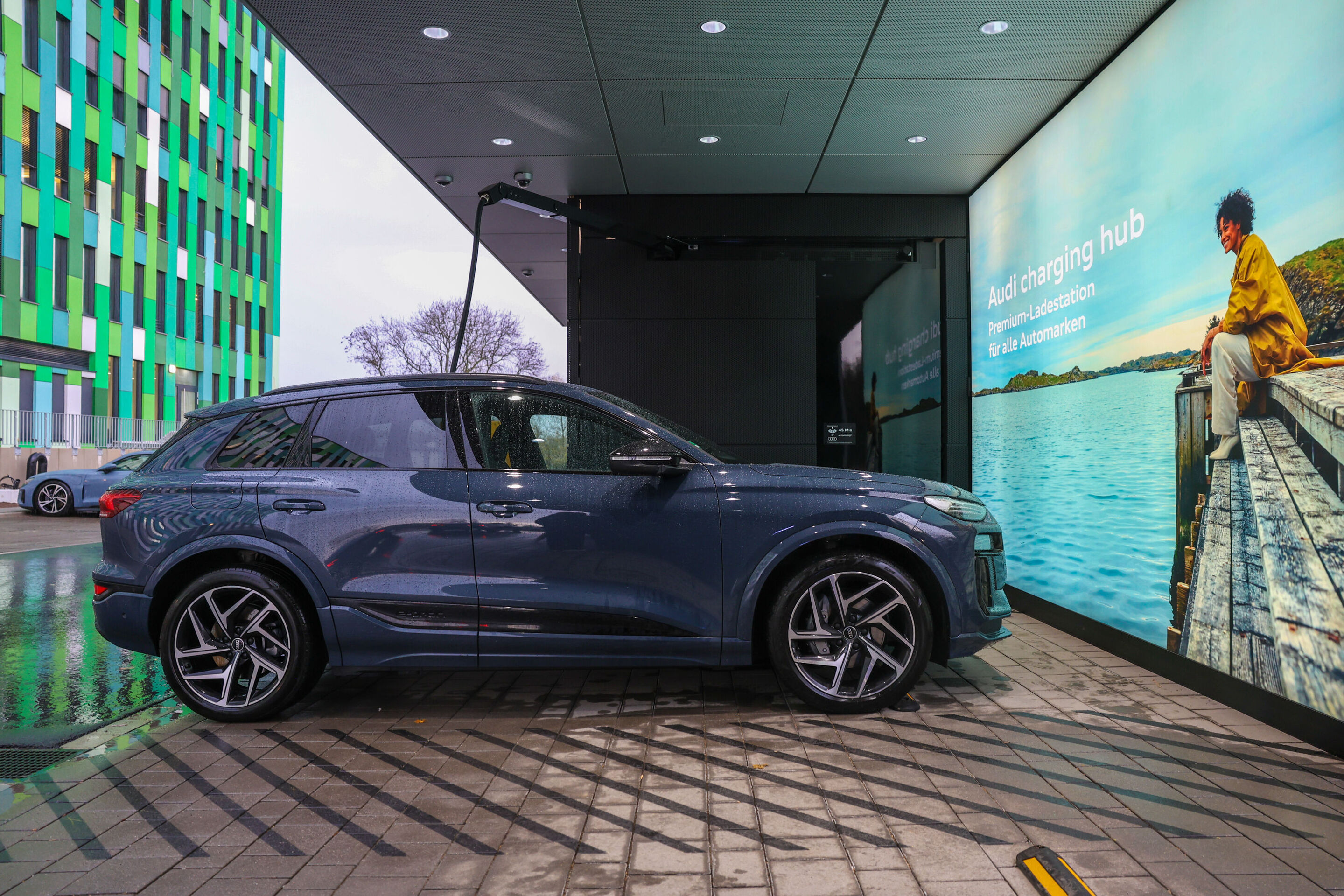 Audi opens third charging hub in 2025: now also in Düsseldorf
Audi opens third charging hub in 2025: now also in Düsseldorf
Perfectly connected: Audi charging hub with low-voltage connection at the EUREF Campus is the latest addition to Audi’s charging infrastructure Modular concept: flexible design and premium services for a future-proof charging experience Hubert Link now responsible for the further development of Audi charging hubs and sets new standards in customer experience and charging convenience
Audi has opened its first Audi charging hub in North Rhine-Westphalia at the EUREF Campus in Düsseldorf, near the airport, sending another strong signal for sustainable mobility. The site is part of an innovative, future-oriented district that serves as a model region for the energy transition. Drivers of electric cars of all brands can charge quickly and conveniently at four high-power charging points with up to 400 kW charging capacity. In 2025, the Four Rings opened three new Audi charging hubs at sites in Kiefersfelden, Munich-Westkreuz, and Düsseldorf. The new hub brings the network to a total of nine locations in German-speaking countries.
Hubert Link, who previously worked in customer care and marketing at Audi, has taken on responsibility for the further development of the Audi charging hubs. “Customer enthusiasm is my top priority. We want to offer customers of all brands a premium charging experience and thereby bring them into direct contact with the Audi brand,” says Link. “The Audi charging hub is much more than just a charging station,” Link continues: “The hubs are a touchpoint and represent an experience with our brand.We can see that we have struck the right chord with this concept at our site in Munich-Obersendling, for example. There, we have a regular customer base who come to charge their cars frequently.” Technical highlights for maximum convenience Audi’s newest charging hub in Düsseldorf is also all about smart energy solutions and offers customers that extra something during their charging time.
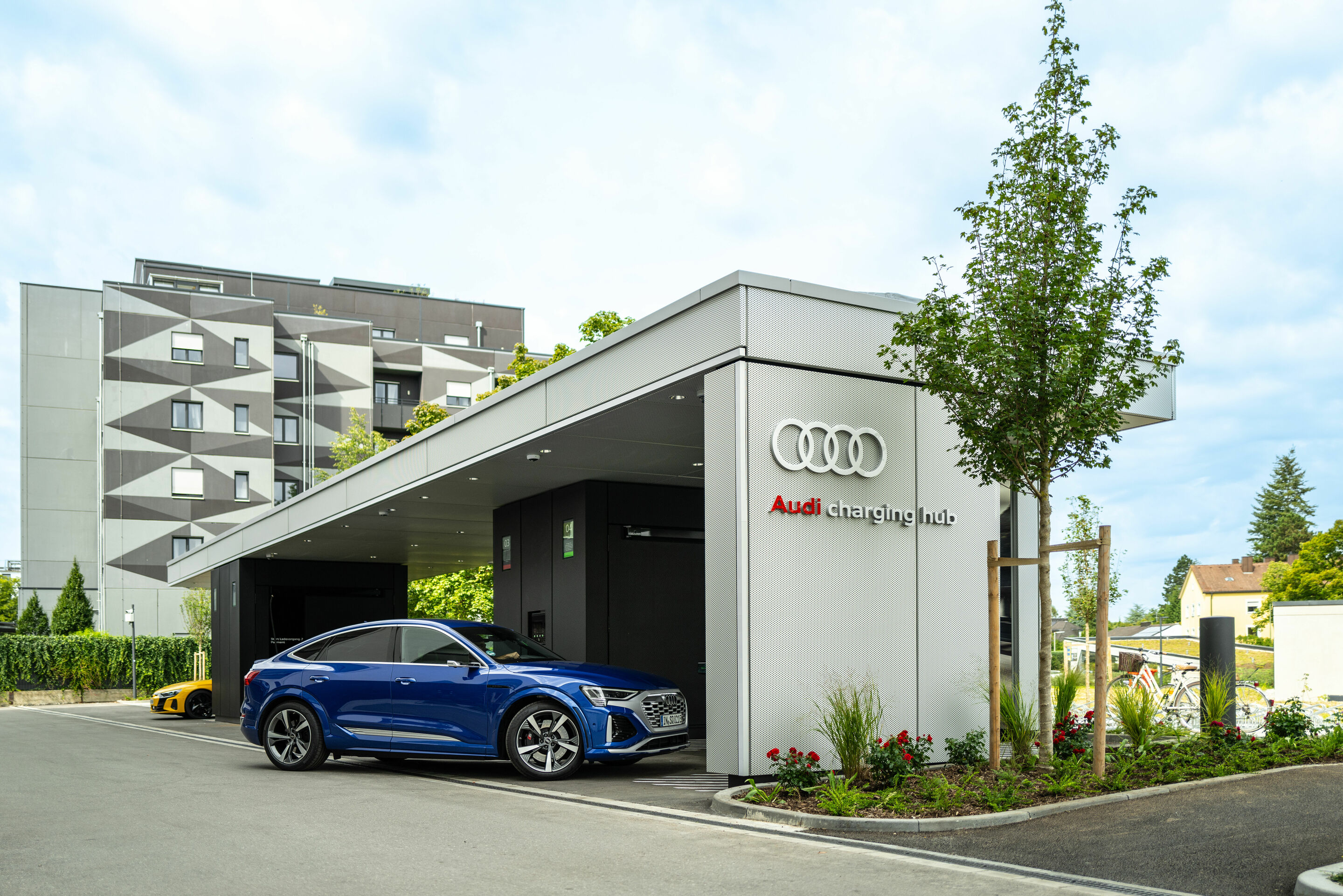
New in Munich: Audi opens fifth Audi charging hub in the Bavarian capital Feedback and free kilometers: Collaboration with &Charge enables direct response and an even better charging experience Virtual insights: Augmented reality project at Audi charging hub in Nuremberg enters testing phase
Audi has opened a new Audi charging hub in Munich’s Obersendling district. Brand ambassador Felix Neureuther, who was present at the opening, was very happy about the charging offering. The brand with the four rings has recently begun cooperating with &Charge, a company that enables users to publicly rate charging stations and rewards them for doing so. A pilot project is being launched at the Audi charging hub in Nuremberg with the aim of adding an augmented reality experience to the digital ecosystem.
The brand with the four rings is opening another Audi charging hub in September 2023. Following Nuremberg, Zurich, Berlin, and Salzburg, the charging station in Munich’s Obersendling district will be the fifth for the brand. The new Audi charging hub in Zielstattstrasse offers four quick-charging points that can be booked in advance and offer up to 320 kilowatts (kW) of charging power. “With what is now our fifth Audi charging hub, we are defining a new performance standard for charging in urban residential areas,” says Bastian Geretshauser, Audi charging hub Munich project manager. “Besides offering up to 320 kW of charging power per charging point, we also ensure constant charging power by means of the power cubes. They consist of used lithium-ion batteries from decommissioned research vehicles that get a second life as buffer storage units in the charging hubs. Thanks to this solution, we achieve an impressive energy capacity of 1.05 megawatt hours. Theoretically, this would be enough to charge 60 vehicles without interruption before the charging power begins to slowly decrease.”
 Audi charging hub in Shibakōen – second in Tokyo
Audi charging hub in Shibakōen – second in Tokyo
Audi opens second charging hub in Tokyo and continues to expand its global fast-charging network Cutting-edge charging infrastructure meets premium service: lounge, hypercharger, and innovative swivel arm ensure sophisticated charging experience Worldwide success: more than 2,500 charging sessions in Tokyo in a year confirm success of Audi charging hub concept
Audi opened its second charging hub in Tokyo, the world’s largest metropolitan region, on April 24, 2025. The company is thus further expanding its fast-charging network and launching its eighth charging hub worldwide.
A location that connects: nature, culture, and urban life The Audi charging hub (ACH) is located in the Shibakōen neighborhood, surrounded by numerous sights such as the Tokyo Tower, the historic Zojoji Temple, and Shiba Park, which was established in 1873. The area combines nature with architecture – green retreats meet modern office and high-rise buildings. Convenient, comfortable charging experience The two-story facility is modeled after the first Audi charging hub in Nuremberg. A battery-powered charging station – the hypercharger from PowerX – is installed on the ground level. With a maximum charging capacity of 150 kilowatts (kW), it can charge two electric vehicles at the same time. The patented Audi swivel arm installed in Shibakōen is attached to the top of the hypercharger. Handling is easy thanks to the cable routing. It enables effortless access to the vehicle’s charging port and keeps the charging cable off the floor. The technology is already known and used successfully at Audi sites in Europe. As with all previous Audi charging hubs, the new Shibakōen hub in Tokyo is designed to be brand-independent and can be used for all electric vehicles. Upstairs, the facility houses a 50-square-meter lounge. As soon as a charging process begins, an access code is sent to the customer’s smartphone, enabling access to the lounge.
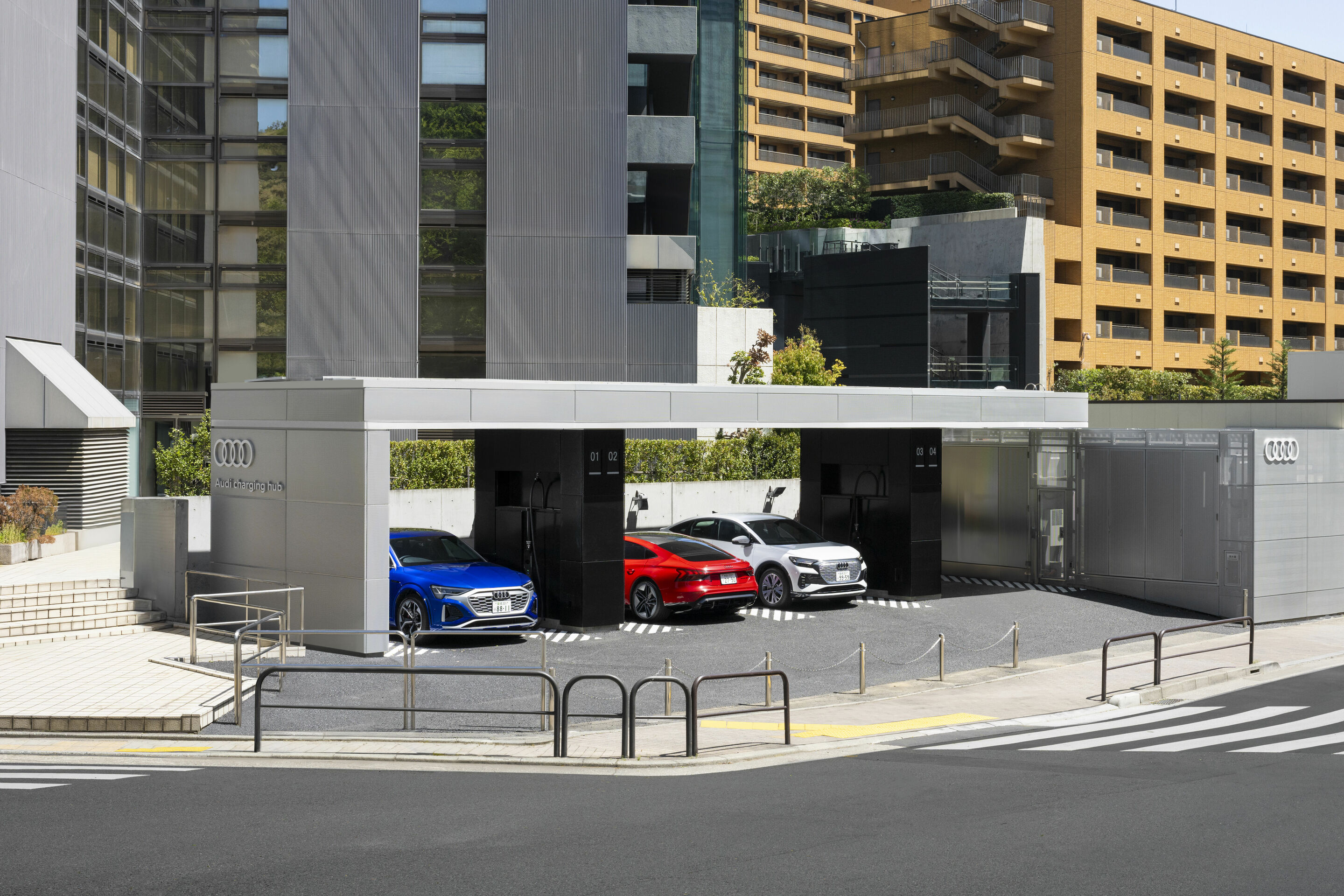
Four reservable fast-charging points in the Kioichō business district Charging capacity of up to 150 kilowatts corresponds to peak value in Japan Open to electric cars of all brands
The four rings opened their first Audi charging hub outside Europe on April 26, 2024. In Tokyo, the capital of Japan, drivers of electric cars of all brands can now charge at four fast-charging points, each with up to 150 kilowatts (kW) – an excellent figure for charging power in Japan. Thanks to a buffer storage unit, the Audi charging hub places low demands on the local power grid. The seventh Audi charging hub overall only uses electricity from renewable sources.
Fast charging in the center of a vibrant metropolis: Audi now offers customers in Japan a perfect charging experience with its new charging hub in Tokyo. The Kioichō business district has offices, shopping facilities, and cafés nearby, allowing customers to spend their charging time in various ways. The hub is also adjacent to Audi City Kioichō, the German premium brand's showroom for electric vehicles in the Japanese capital. With this concept, Audi primarily serves a target group which cannot charge their cars at home in an urban environment. The compact version of the Audi charging hub in Tokyo has two charging stations with a total of four fast-charging points featuring CHAdeMO charging plugs. Like its European counterparts, the fast-charging station can be used for all-electric vehicles, regardless of brand. In the future, Premium Charging Alliance (PCA) members will be able to reserve a charging point via the PCA app and thus avoid waiting times. PCA is a joint project between Audi and Porsche that aims to expand the fast-charging network in Japan. Around 6,000 PCA members currently have access to more than 400 fast-charging points nationwide. Battery storage solution enables fast charging Customers can charge their electric vehicles with up to 150 kW at the Audi charging hub in Tokyo.
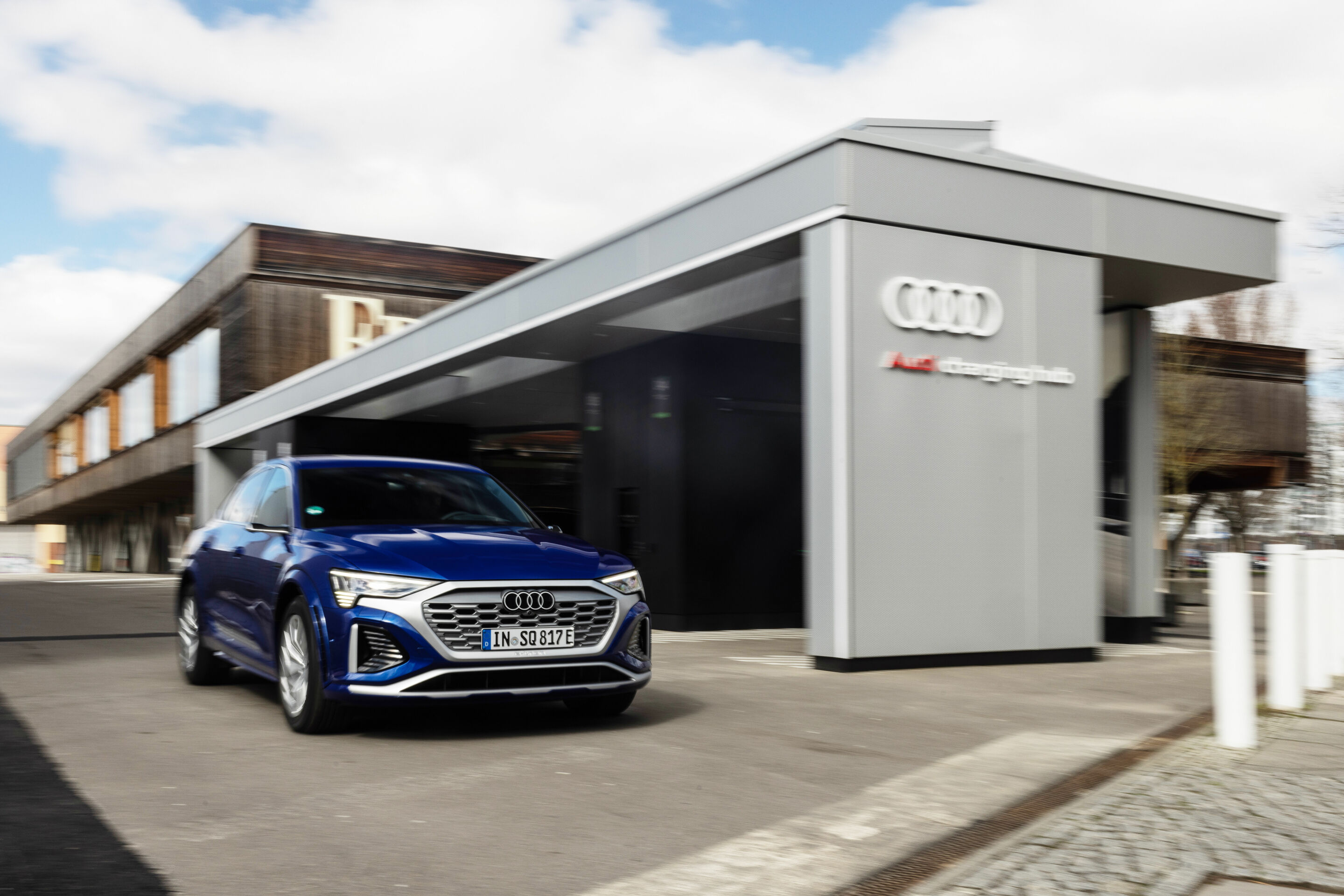
Four reservable quick-charging points with up to 320 kW of charging power Audi plans smart management for each additional charging hub High return rates in Nuremberg and Zurich validate the urban premium quick-charging concept
Audi is opening its third charging hub: Following on from the Nuremberg and Zurich locations, the brand with the four rings now turns to a local partner company in Berlin, using the existing power supply there. The neighboring Frischeparadies, with its attractive shopping market and gourmet bistro, is acting as a cooperation partner and providing its power connection for use by the hub. In the future, Frischeparadies and the Audi charging hub will get their power from a shared power line, on a needs- and load-oriented basis. Equipped with second-life batteries, the charging station will only charge the buffer batteries when Frischeparadies requires little power. The smart, dynamic load control system Audi has developed in-house thus ensures efficient use of the existing power infrastructure. In selecting the location, Audi relied on an in-house data analysis to determine on-site demand in advance.
“Our dynamic load control system enables us to shift our energy demands to a time of day when Frischeparadies is using less power from the grid,” explains Elias Hammer, the Audi Manager responsible for the rollout in Berlin and energy system integration for the Audi charging hub. “Berlin is yet another example of the success of our smart charging concept,” says Ralph Hollmig, Audi charging hub project manager. “In this way, we will manage all hub locations as efficiently and sustainably as possible. We are working on energy optimization. In the future, we can even imagine using smart trading to buy electricity from the energy exchange. This also means, for example, that we buy electricity from renewable sources when it’s affordable,” Hollmig adds.
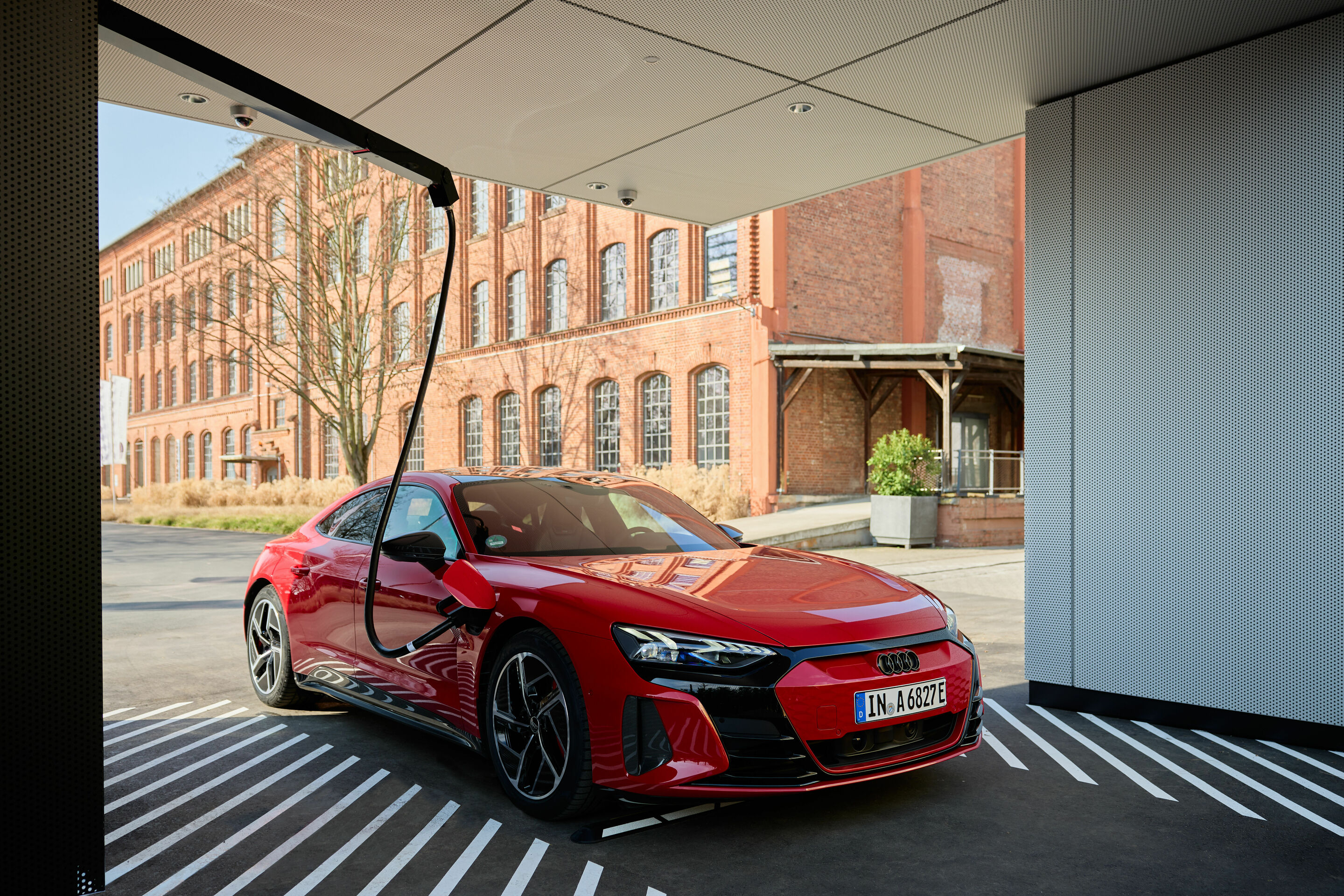 Audi charging hub in Frankfurt: easy, fast, and without barriers
Audi charging hub in Frankfurt: easy, fast, and without barriers
Smooth-action swivel arm, height-adjustable displays, and ample room between charging points make charging easy for all Attractive food and service offers at partnering Klassikstadt Frankfurt New service: support advisors provide virtual guidance from Audi charging hub in Nuremberg
Audi opens its sixth charging hub in Frankfurt am Main. At Orber Straße, the drivers of electric cars of all makes can charge their vehicles with up to 320 kW of power using four high-power-charging (HPC) stations. While their car charges, users can have an enjoyable experience at the adjacent Klassikstadt Frankfurt. Audi has partnered up with this enterprise located in a listed historical former factory that boasts an internationally renowned collection of vintage and modern classic cars and offers a range of services. Guests can choose from a wide selection of snacks, beverages, and hot meals and enjoy them in an attractive, comfortable setting. Moreover, all Audi charging hubs are designed to be barrier-free: a swivel arm, for which a patent has been registered, height-adjustable displays, and ample room for maneuvering – in a wheelchair, for example – make charging easy for all, including people with disabilities.
The swivel arm reduces the weight of the charging cable by around 60 percent. As a result, customers in wheelchairs can hold the CCS connector in one hand and move their wheelchair with their other hand. A CCS connector holder further optimizes operation for wheelchair users, while a canopy prevents the connector from getting wet. Furthermore, the swivel arm ensures trouble-free access to any charging sockets, whether they are located at the front, back, left, or right of the vehicle. This saves the driver from having to maneuver their vehicle into position. Automatic cable retraction prevents the charging cable from becoming a trip hazard or from blocking the way of wheelchair users. Moreover, it keeps the cable dry at all times.
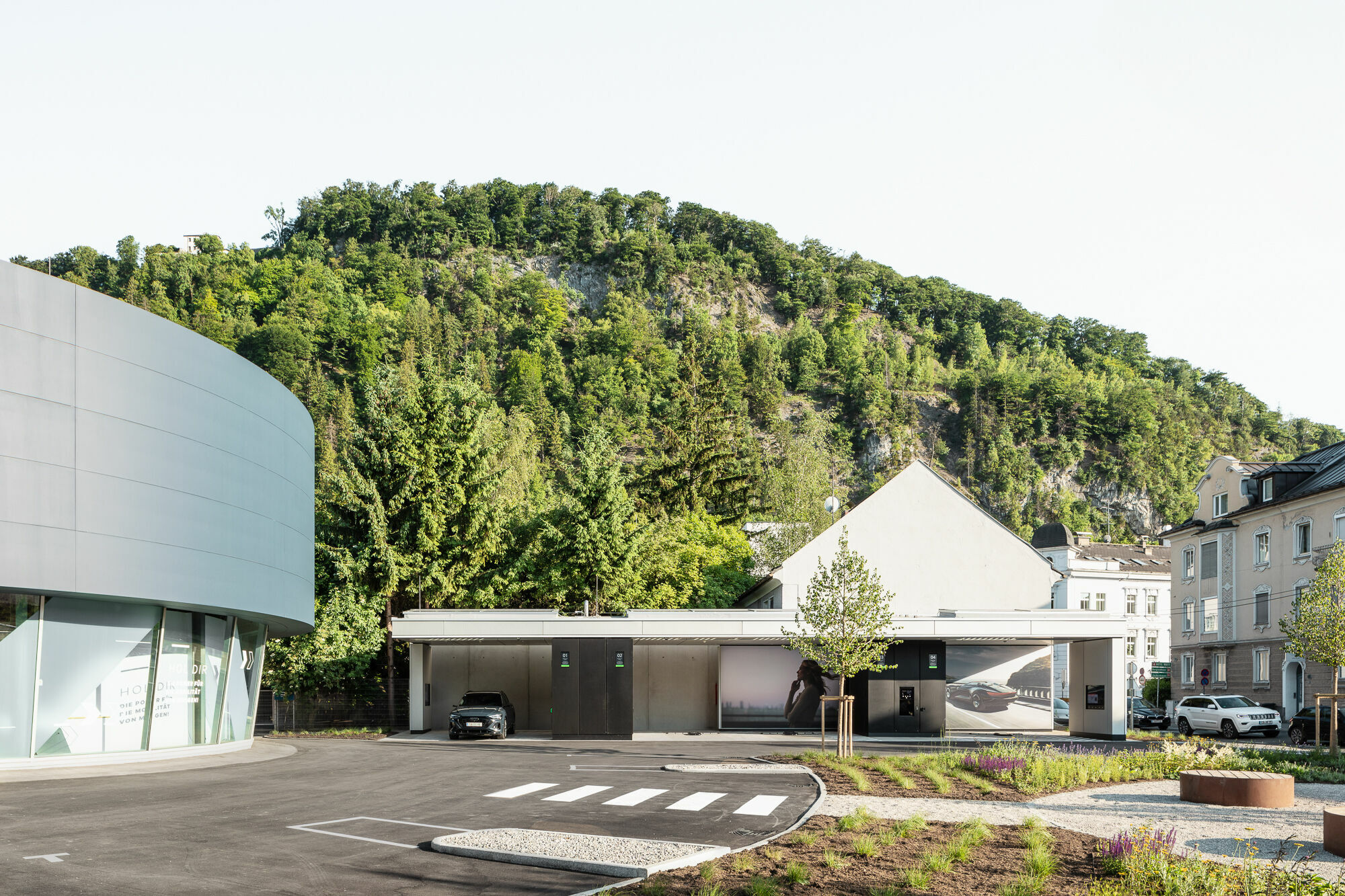 Audi redefines quick charging: first Audi charging hub in Austria opened in Salzburg
Audi redefines quick charging: first Audi charging hub in Austria opened in Salzburg
Four reservable quick-charging points with up to 320 kW of output Vorsprung durch Technik enables sustainable charging without any drop in performance Accessibility, strong charging performance, existing infrastructure, and much more turn charging into an experience Ad-hoc charging also possible via credit card, Apple Pay, and Google Pay 24/7 availability and numerous services also make the charging hub attractive to people just passing through
Audi is opening its first charging hub in Austria: Following locations in Nuremberg, Berlin, and Zurich, the brand with the four rings opened a premium quick-charging station in Salzburg today, its fourth worldwide. Just next door, MOONCITY is Salzburg’s competence and experience center for new and electric mobility. It provides the perfect infrastructure in the immediate vicinity of the hub, so charging is a customer-friendly and pleasant experience.
“The rapid expansion of the charging infrastructure in Europe and worldwide is crucial for the success of e-mobility. We see this as a joint task for politics and industry. The Audi charging hubs are our way of supplementing the public charging infrastructure,” says Audi CEO Markus Duesmann. High charging output without any drop in performance through “Vorsprung durch Technik” The Audi charging hub differs from many other quick-charging stations in that it does not require a medium-voltage connection. This sets it apart from many other quick-charging stations, which often necessitate additional infrastructure. The concept is based on “charging cubes” – modular containers that contain refurbished lithium-ion batteries (second-life batteries) made from disassembled Audi development vehicles. The design reduces the strain on local grid capacity and means the charging hub requires no elaborate, expensive infrastructure.
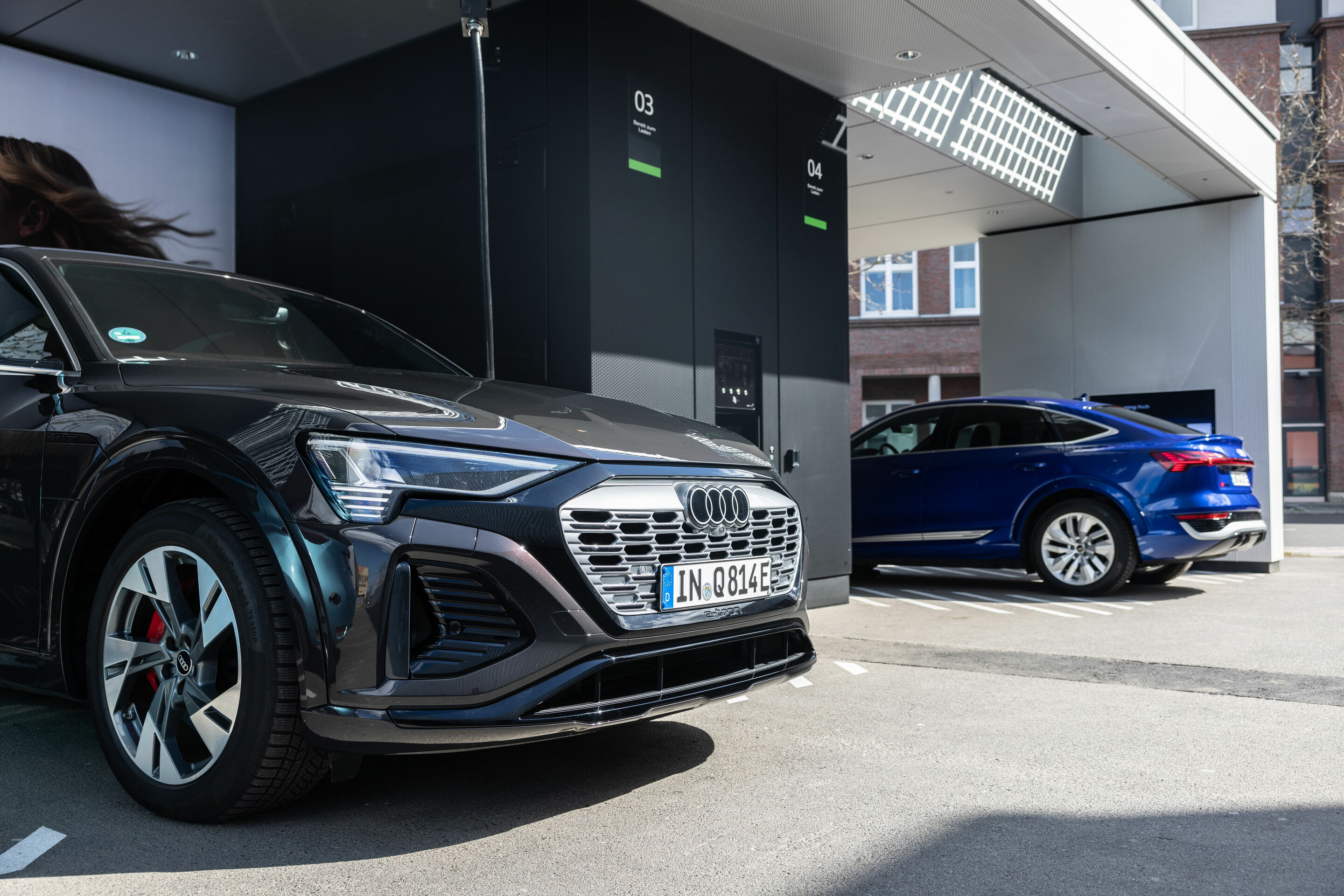
Urban quick-charging site in high-density Prenzlauer Berg neighborhood Power hooked up through cooperation partner Frischeparadies Other compact Audi charging hubs to follow in 2023
The brand with the four rings is opening a third Audi charging hub right in the center of Berlin. In the German capital, as in Nuremberg and Zurich, second-life batteries will act as buffer storage, and, like Zurich, the compact Audi charging hub with four quick-charging points will be used. At the site in Prenzlauer Berg, however, Audi is taking a different approach to the power hookup. This development is explained in this interview by Elias Hammer, who is the Audi Manager responsible for the rollout in Berlin and for the energy system integration for the Audi charging hub. Future users of the Audi charging hub in Berlin can look forward to an “electrifying wait” during charging instead of the usual boredom as the cooperation with Frischeparadies will mean the time can be put to good use. For Jörg Haucke, a Q4 e-tron customer living in Berlin, the Audi charging hub is the perfect solution for urban charging, with many large cities currently still lacking a quick-charging infrastructure.
Why did Audi select the compact version of its charging hub in Berlin? Elias Hammer: The site in Prenzlauer Berg is close to the east-west B1 highway in a high-density residential area. It is an ideal location for the compact version of the hub to offer drivers of electric cars, most of whom have no home charging option, a convenient and above all reliable quick-charging option in the city center. In general, we expect a high charging demand in cities for commuters returning home. The buffer storage unit always ensures a constant output of 320 kW at each charging point. We expect the Prenzlauer Berg site in particular to be highly frequented. As is the case here, we generally build our charging hubs where our customers can include a charging stop of 30 to 40 minutes in their daily routine.

